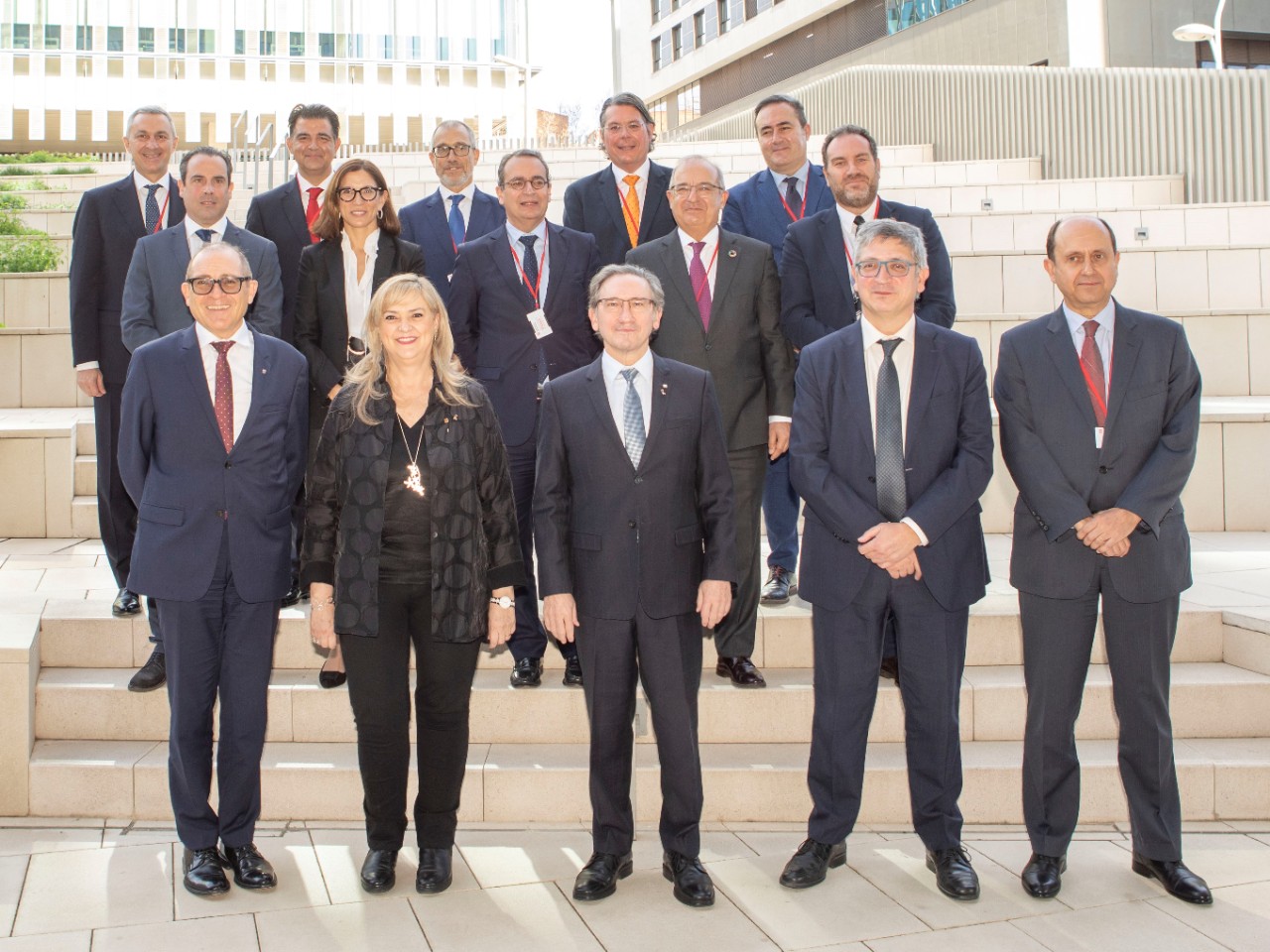Recipients will be homeowners’ associations, private individuals and renovation agents hoping to take advantage of the Residential Energy Renovation Grants Facility run by the Catalan Housing Agency. The idea is to advance the total investment needed to undertake the work including the amount of the aid which will be covered by European funds.

The ministries of Economy and Finance and Social Rights, the Catalan Housing Agency (AHC), the Institut Català de Finances (ICF), Avalis de Catalunya SGR and ten other financial institutions have this Thursday concluded a partnership agreement to provide financing for residential energy renovation projects to homeowners’ associations, private individuals and renovation agents. This is a new loan facility associated with the ‘Residential Energy Renovation Grants Facility’ run by the AHC and tied to Next Generation EU funds. The €480 million in aid will be allocated to some 60,000 properties across Catalonia and is expected to lead to as much as €722 million in induced investment as long as the fund’s targets are met.
Under the terms of the agreement signed today, the financial institutions and the ICF are to set up a loan facility mainly addressed to homeowners’ associations but also for individuals and renovation agents who invest in energy-efficient and sustainable building projects based on the Catalan Housing Agency’s guidelines in the ‘Residential Energy Renovation Grants Facility’. The idea is to advance the total investment needed to undertake the work including the amount of the aid which will be covered by European funds.
The institutions that have signed the agreement are ARQUIA BANCA, Bankinter, BBVA, Banc de Sabadell, Banco Santander, CaixaBank, Caixa d’Enginyers, Deutsche Bank, Ibercaja and the UCI (Unió de Crèdits Immobiliaris).
The Minister of Economy and Finance, Jaume Giró, stressed the importance of this agreement “as an instrument available to people” since it sets up a mechanism which streamlines the procedures for housing energy renovation transactions and “enables recipients to directly tap into European funds, something which has not been that common to date.” Furthermore, this is the first Next Generation EU funds project to be run by the Catalan Government with “the hands-on commitment and involvement” of financial institutions. “I hope that this is the first of many partnerships to come to ensure that these European resources really do reach as many people and small and medium-sized enterprises as possible,” he added.
Likewise, Minister Cervera announced that the Ministry of Social Rights is to handle over €1 billion with €640 million allocated to housing policies in the shape of €160 million for social rental housing development and €480 million for housing renovation. She pointed out that the latter facility “aims to renovate over 60,000 homes with energy savings coming to 30%” and noted that “we have set up a streamlined system for processing grants through the Catalan Housing Agency which provides utmost safeguards to everyone involved.” All this means that “Next Generation EU funds must and will be a chance to improve people’s lives, combat climate change and reinvigorate a key sector of our economy.”
Residential Renovation Grants Facility tied to energy efficiency
To qualify for grants under this call for proposals being processed by the AHC, applications have to certify that their renovation project will cut non-renewable primary energy (NRPE) use, reduce demand for air conditioning, completely get rid of asbestos or achieve other targets depending on their climate zone.
The amount of the grant will vary based on how much energy is saved after the renovation is completed. Thus if NRPE usage is cut by over 30%, the aid will be 40%. If the savings come to 45%, the grant will cover 65% of the investment. Meanwhile, if the reduction is more than 60%, the aid will reach 80%. There may also be 100% subsidies for vulnerable people.
The justification of the investment to receive the grants will have to be completed by June 2026.
Features of the loans
The agreement specifies that loans will be matched to the type of recipient and used to fund projects the Catalan Housing Agency considers eligible. They may cover up to 100% of the investment including VAT. This amount will include the grant awarded by the AHC which will be used to repay the loan in advance and entirely applied to trimming down monthly payments without changing the loan’s term.
In the case of homeowners’ associations, for example, the loans will have a fixed rate not greater than 5.25% per year with a 10-year repayment period. This term may be extended up to 15 years depending on the collateral.
For private individuals, the interest rate will be at most 4% for up to seven years, which can also be extended to 15 years based on the collateral.
Finally, financing for renovation agents will be at a maximum rate of 5% for a period of 10 years. These recipients will also be eligible for a guarantee from Avalis which will allow them to extend the loan for up to 15 years and get a 1.50% interest rate reduction if the mutual guarantee company backs the loan for at most 12 years.
The signatory financial institutions
Today’s signing ceremony was attended by Jaume Giró, Minister of Economy and Finance; Violant Cervera, Minister of Social Rights; Jaume Forn, Director of the Catalan Housing Agency; Jordi Òliva, CEO of the Institut Català de Finances (ICF); Josep Lores, CEO of Avalis de Catalunya SGR; Alfonso Madruga, Internal Legal Department Director at ARQUIA BANCA; Eduard Gallard, Deputy Director General and Catalonia Organisation Director at Bankinter; José Ballester, BBVA’s Regional Director for Catalonia; Enric Rovira, Deputy Director General and Regional Director for Catalonia at Banc Sabadell; Xavier Cañadó, Institutions Director for Catalonia at Banco Santander; Xavier Garcia, Corporate Banking Sales Director at CaixaBank; Joan Cavallé, General Manager of Caixa d’Enginyers; Javier David Boix, Avanza Crédito Area Director at Deutsche Bank in Catalonia; José Maria Santos, Regional Institutions and Mortgage Business Manager at Ibercaja, and Javier Torremocha, Director of the UCI’s Renovation and Refurbishment Channel.
About the ICF
The Institut Català de Finances is Catalonia’s public financial institution. Its main mission is to foster funding for the business community in Catalonia in order to support the growth, innovation and sustainability of the Catalan economy. The ICF acts as a complement to the private sector by offering a wide range of financing solutions focusing on loans, guarantees and venture capital. Since 2014 it has been a member of the European Association of Public Banks (EAPB) which brings together most of the public banks and financial institutions operating in Europe.
